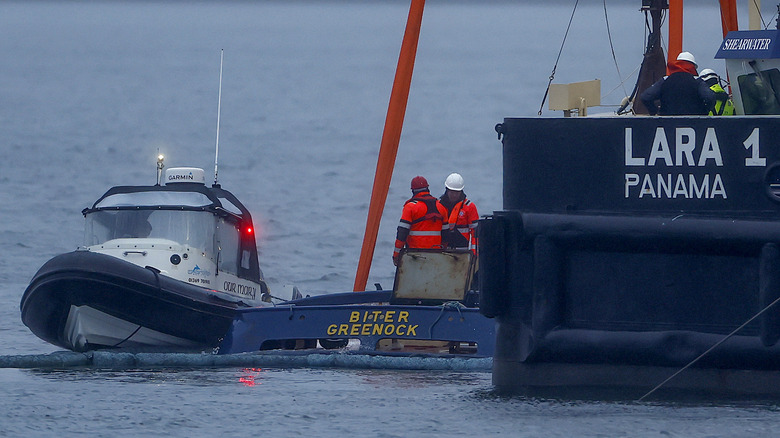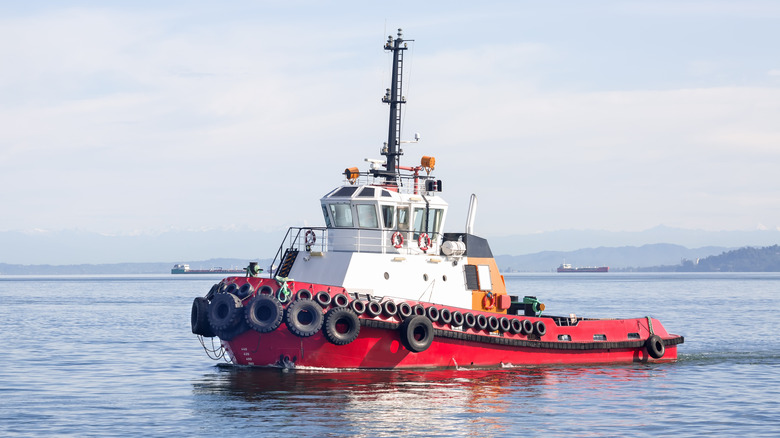Yes, A Tugboat Can Capsize – A Look At The Risks These Vessels Face
Tugboats may look tough, but they're not immune to accidents, and capsizing is one of the most serious. These compact, high-powered boats operate in tight spaces, push and pull vessels many times their size (even aircraft carriers), and face strong currents and heavy mechanical loads. And yes, they can capsize quickly, and often without warning.
Take the George H. Ledcor incident on the Fraser River, for instance. It capsized in 2018 while hauling a gravel barge. The cause was a dangerous condition called girding, where the towline exerts a sideways force, pulling the tug broadside. The vessel flipped before the crew could abort the operation. The vessel had three abort systems on board, which proved another failure point that contributed to the incident. Capsizing isn't rare either. Between 2005 and 2018, the Transportation Safety Board reported 26 girding incidents, 21 of which led to tugboat capsizing.
The hazards tugboat crews deal with daily
Tugboats are filled with risks that can maim or kill. Workers face winch wires with high tension, slippery decks, and dangerous jumps between barges. Some of the most common injuries happen when a line snaps or tightens unexpectedly. A "line bite" can crush appendages. There are also risks from mechanical failures, which can leave a vessel dead in the water, adrift. Fires from fuel leaks or bad wiring are another real threat. Once a fire starts in those cramped conditions, it's hard to contain.
There's also the ever-present risk of falling overboard, even if the tugboat might not be moving that fast. A crew member who slips off the deck can get caught between the tug and the vessel it's towing. If the water's cold, hypothermia can set in fast. Noise-induced hearing loss, chemical exposure, burns, blunt force trauma, and broken bones are all part of the job when things go wrong. Without proper gear, solid safety practices, and good training, even a small slip can turn into a major injury.
When accidents happen, the law isn't always simple
If you're injured on a tugboat, maritime law offers some level of protection, but getting fair compensation can be tricky. For starters, injured seamen are entitled to "maintenance and cure" (basic living and medical expenses) even if no one's at fault. But that coverage ends when you hit maximum medical improvement, whether or not you're actually ready to work again.
If negligence played a role — maybe the vessel wasn't seaworthy or safety protocols weren't followed — you may have a claim under the Jones Act. That could mean compensation for lost wages, future earnings, medical bills, and pain and suffering. But proving negligence, even under the Jones Act, still takes work.
You might also have a case against a third party — perhaps an equipment manufacturer or another vessel operator — if their actions or products contributed to the accident. Cases like this can get complicated fast, however. That's why maritime lawyers exist. If you're hurt doing this job, you need to know your rights and act fast before you're pressured into a bad settlement or denied the compensation you're owed.


